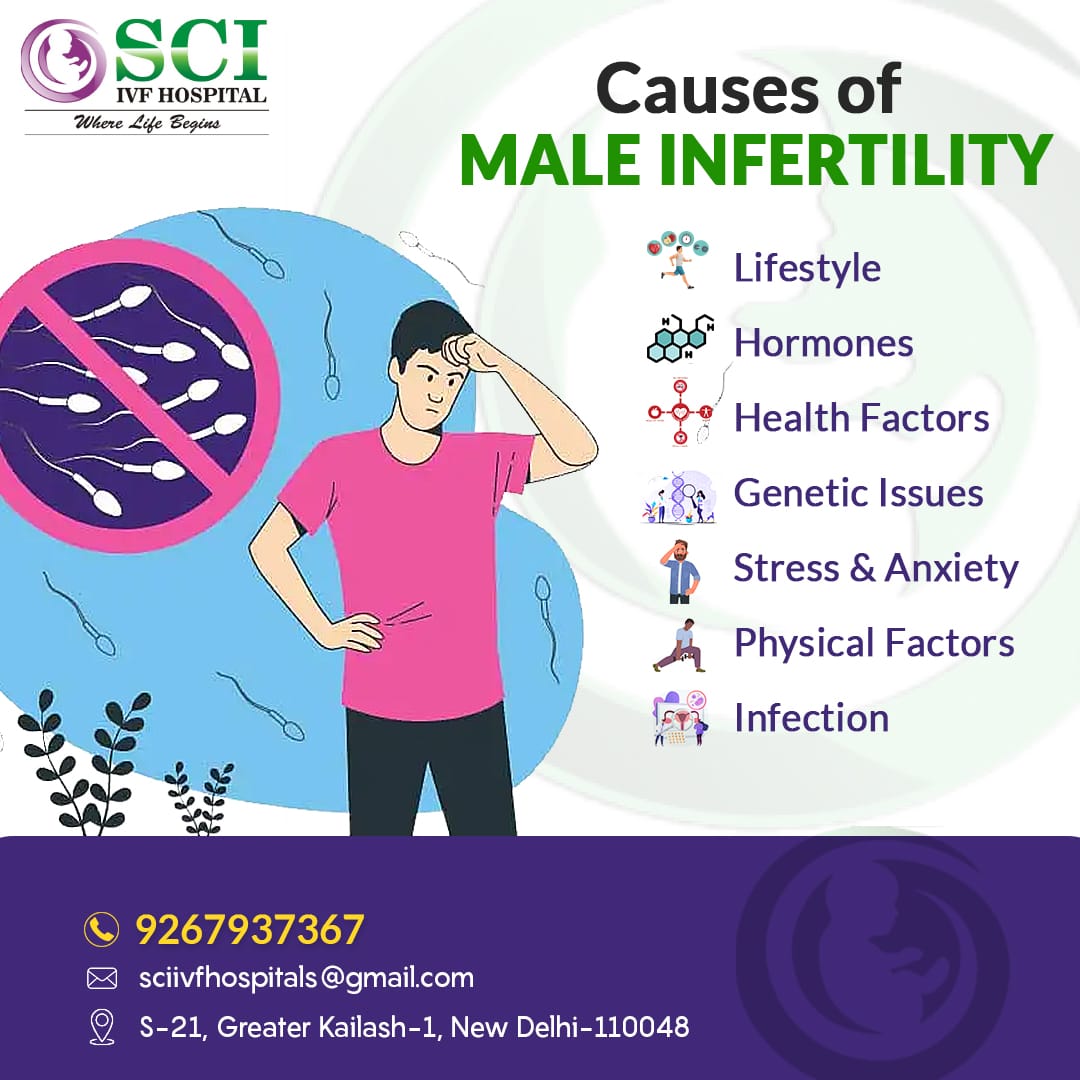Male infertility is a growing concern globally, affecting almost one in every seven couples who are trying to conceive. It is a medical condition that impairs a man’s ability to father a child. While there are several treatments available to address infertility, it’s important to understand the underlying causes of the problem. In this article, we will explore some of the most common causes of male infertility.
Lifestyle factors: Modern lifestyle choices can have a significant impact on male fertility. Factors such as smoking, alcohol, and drug use can reduce sperm count and motility. Overuse of steroids and other performance-enhancing drugs can also affect fertility. Other lifestyle factors that can impact fertility include poor nutrition, lack of exercise, and excessive stress.
Hormonal Imbalance: Hormonal imbalance is another common cause of male infertility. Hormones such as testosterone, follicle-stimulating hormone (FSH), and luteinizing hormone (LH) play a crucial role in sperm production. Low levels of testosterone, FSH, or LH can cause reduced sperm production, leading to infertility.
Health Factors: Several health conditions can impact male fertility. Chronic illnesses such as diabetes, high blood pressure, and obesity can reduce sperm count and motility. Additionally, certain medications, such as chemotherapy, can also affect fertility. Men with a history of mumps or other infections may experience infertility due to testicular damage.
Genetic Issues: Genetic issues can also play a role in male infertility. Certain genetic conditions such as Klinefelter’s syndrome and Y-chromosome microdeletions can lead to infertility. Additionally, genetic abnormalities that affect the reproductive system or hormone production can also cause infertility.
Stress and Anxiety: Stress and anxiety can impact male fertility in several ways. High levels of stress can lead to hormonal imbalances, which can reduce sperm count and motility. Additionally, stress can also impact sexual function, leading to erectile dysfunction and premature ejaculation.
Physical Factors: Physical factors such as injury, trauma, or surgery can also lead to male infertility. Damage to the testicles or surrounding area can impair sperm production or reduce the quality of sperm. Varicoceles, or enlarged veins in the scrotum, can also cause infertility by increasing testicular temperature and reducing sperm production.
Infections: Certain infections can also cause male infertility. Sexually transmitted infections such as gonorrhea and chlamydia can lead to scarring and damage to the reproductive system. Other infections such as mumps can also cause inflammation of the testicles, leading to infertility.
In conclusion, male infertility is a complex medical condition with several potential causes. Identifying the underlying cause of infertility is crucial to finding the right treatment. If you are experiencing infertility, it’s important to consult a healthcare provider to discuss your options. Making healthy lifestyle choices, managing stress, and treating any underlying medical conditions can also improve fertility outcomes.





